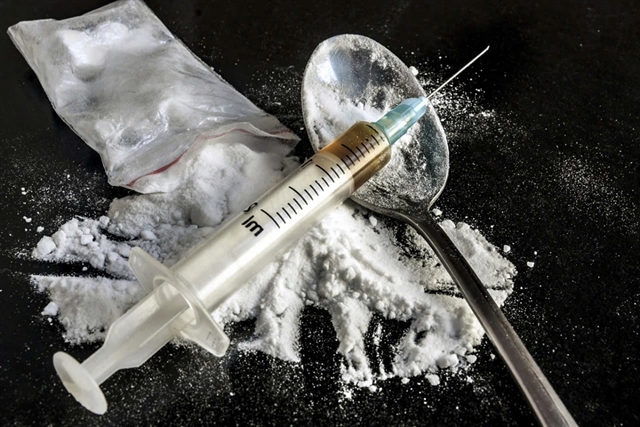
|
| Illustrative Photo vov.vn |
Lieutenant Colonel Phan Anh Trung, deputy head of Division 6, Investigation Police Department of Drug-Related Crimes under the Ministry of Public Security, speaks to Voice of Vietnam (VOV) about drug use prevention and control at schools ahead of a new school year.
What is your opinion on the expansion of drug-related offences that occur in schools? What kinds of drugs are most frequently taken by students nowadays and how has this changed?
We estimate that there are now more than 1,700 students addicted to drugs and illegally using drugs.
Currently, over 100 students have engaged in drug-related offenses.
Although this percentage may seem low, the fact that it is rising, particularly in schools, makes it quite concerning.
In the past, it was mainly opium and heroin addiction, followed by some synthetic drugs of the Amphetamine and Methamphetamine groups (such as heroin and ecstasy).
These days, addicts—including those who are young—often turn to synthetic substances like ketamine, bromazepam and gamma-hydroxybutyrate, which are extremely poisonous but simple to obtain, sell, conceal and consume.
These substances are frequently used to make beverages including coffee, strawberry juice and so-called ‘happy water’.
Among the marijuana and synthetic marijuana products that are used to make shadow drugs are candies, electronic cigarettes, tobacco, herbs (sometimes called American grass) and various cosmetic and health care items. Drug use is reported at home as well as in bars, coffee shops and cafés.
How has the collaboration for drug crime prevention with the Ministry of Education and Training, schools and families been going?
The Investigation Police Department of Drug-Related Crimes has coordinated with units of the Ministry of Education and Training, the local departments of education and training to advise leaders at all levels to issue major guidelines and decisions, focusing on the legal dissemination to raise public awareness, strengthening management and education on students to help them stay away from drug evils.
Students who take drugs or are addicted will have the option of being managed according to regulations or sent to drug rehabilitation facilities, with the option to return to school following rehabilitation. Since prevention is always better than cure, communication and education will continue to be seen as the most crucial approach.
We will also concentrate on combating those who manufacture, distribute, transport and store drugs illegally. Managing drug addicts and the post-rehab phase for educators, administrators and students in schools is equally essential.
What obstacles do you see in the way of combating drug-related crimes today and how may these be overcome?
There are favorable conditions surrounding the fight against drug offences, including guidance and close attention from the Ministry of Public Security, the Party, the Government and other sectors, as well as support from the general public and the global community.
There are still some difficulties, for example, Việt Nam’s terrain stretches from north to south. Our country is located close to the Golden Triangle area – the world’s major drug centre.
In certain places, people still don’t know much about the law, even while emerging and hazardous drugs are becoming more common than ever.
They are easy to be purchased and used with more sophisticated tricks.
Drug rehabilitation is ineffective and the recurrence rate remains high, particularly when it comes to inpatient and outpatient treatment.
Due to overcrowding in the majority of public drug rehab centres, many drug addicts remain in their communities.
Local authorities need to continue to pay attention and coordinate closely with the police to carry out drug prevention and control tasks.
Control measures must be tightened and private associations and groups that recruit young people to take drugs or engage in criminal activity must not be allowed to form in cyberspace.
It is necessary to pay attention to investing in specialised drug prevention and combat forces like police, customs, border guards and coast guard to effectively fight drug crimes early, from afar, right in the border areas as well as inland.
In order to help lower the source of drug demand, we need also decrease relapse rates and enhance the efficacy of rehabilitation and post-rehab management. VNS
- Reduce Hair Loss with PURA D’OR Gold Label Shampoo
- Castor Oil Has Made a “Huge” Difference With Hair and Brow Growth
- Excessive hair loss in men: Signs of illness that cannot be subjective
- Dịch Vụ SEO Website ở Los Angeles, CA: đưa trang web doanh nghiệp bạn lên top Google
- Nails Salon Sierra Madre
 VnExpress News The News Gateway of Vietnam
VnExpress News The News Gateway of Vietnam





